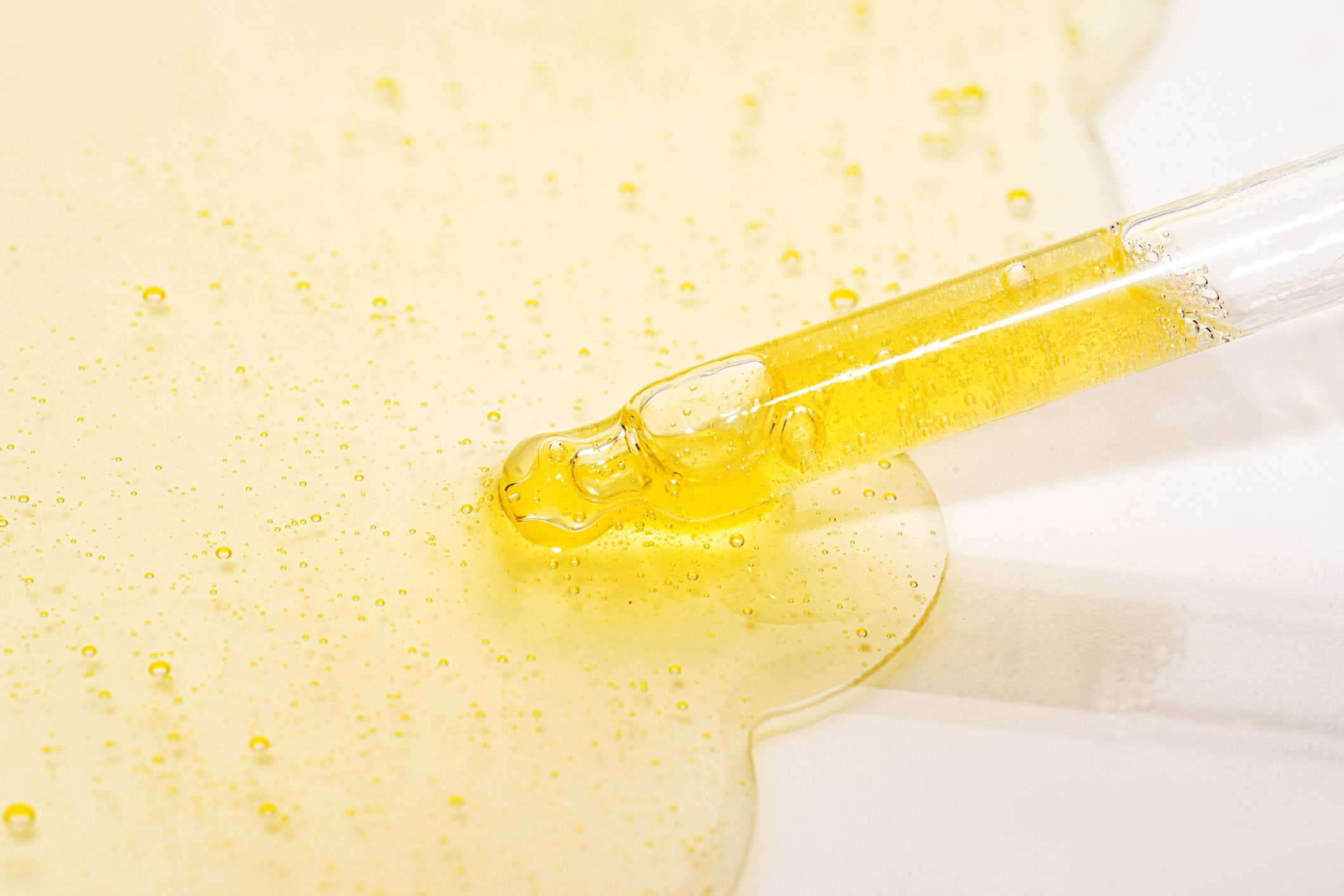
Vitamin C is known for keeping our bones strong and supporting great immunity, but it plays an important role in skin health, too.
According to research published in Frontiers in Physiology, our skin needs high concentrations of vitamin C to form its protective barrier, produce plumping collagen, and protect against the sun’s damaging ultraviolet (UV) rays. In a nutshell, these effects translate to great skin texture and skin tone, explains Emmanuel Loucas, MD, Director of SINY in New York, assistant professor of dermatology at Mount Sinai Health System in New York.
While you should aim to get enough vitamin C in your diet (like with these vitamin C-rich foods), you can also apply a good vitamin C serum directly on your skin for a potentially substantial boost. Dr. Loucas says this topical use doesn’t just help you maintain dewy, healthy skin—it can also target existing wrinkles and unwanted dark spots.
But that’s only if you use this powerhouse skincare ingredient properly. So, to help you get the most out of your skincare routine, experts reveal to The Healthy @Reader’s Digest some of the most common mistakes skincare lovers make with vitamin C serums.
Intrigued? You’re in luck: Dermatology Pros Just Listed Their 6 Favorite Vitamin C Serums
Vitamin C Serum Moves Dermatologists Recommend You Avoid

Applying it at the wrong time
Tara Adashev, APRN, a registered nurse and injectables practitioner in New York City, says using your vitamin C product in the morning amps up the skin protection you’re getting from sunscreen.
A study published in the Indian Dermatology Online Journal backed up this point, finding that combining vitamin C serum with your broad-spectrum sunscreen is more effective in protecting skin from UV damage than sunscreen alone.

Choosing poorly packaged products
This is interesting: because light, air, and heat accelerate vitamin C’s breakdown, the right packaging can extend its effectiveness. The clinicians we spoke with suggest you choose a product in darker bottles that block light and try to store it in a cool, dry place.
Some products also come with airless pumps to prevent as much oxygen exposure as possible.
Get The Healthy @Reader’s Digest newsletter to keep healthy beauty buzz in your inbox
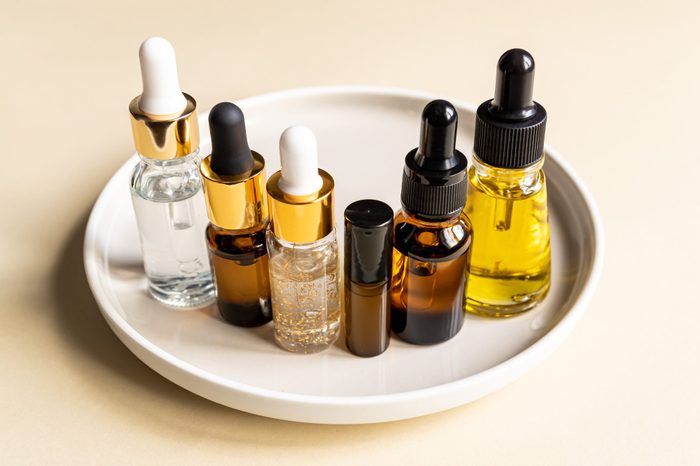
Mixing it with the wrong products
You can also use vitamin C as part of your nighttime routine, says Debra Jaliman, MD board-certified NYC dermatologist, Assistant Professor of Dermatology Icahn School of Medicine at Mount Sinai, and author of Skin Rules: Trade Secrets from a Top New York Dermatologist.
In fact, a 2015 study published in the journal Science found that UV skin damage continues for hours after sun exposure, suggesting nighttime vitamin C use could help combat these lingering effects. (But again: if you’re using vitamin C serum, wear your sunscreen!)
Still, there are some important caveats. “Vitamin C is pretty adaptable,” Adashev says, so you can use it with most other skincare ingredients. However, steer clear of applying it at the same time as retinoids, benzoyl peroxide, or hydroxy acids, as these combos can trigger skin irritation. (Also, for the safety of your skin, you do not want to be sunbathing while using any of these products.)
Even if you don’t have sensitive skin, mixing vitamin C and a retinol product cancels out skin benefits, says MJ Rowland-Warmann, aesthetic medicine practitioner and founder of Smileworks in the U.K. “Vitamin C needs acidity, and the preparations are formulated for this,” she explains. “Retinol needs an alkaline pH—so mixing them means they don’t work to their individual potential.”
Why Dermatologists Say Retinoids Are Still the Gold Standard for Gorgeous Skin
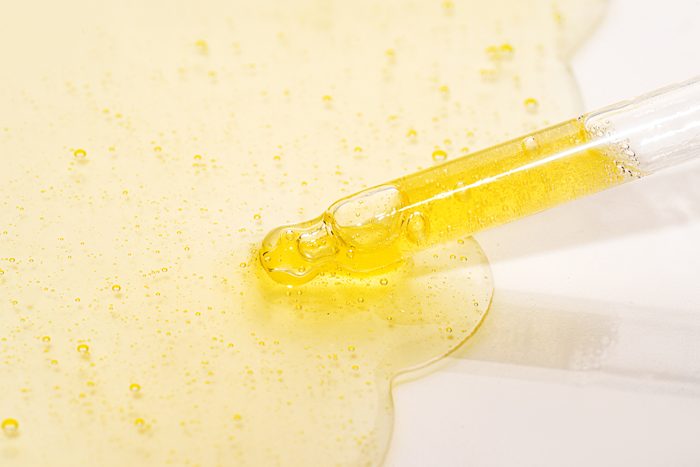
Using ineffective ingredients
“The most active and effective form [of topical vitamin C] is L-ascorbic acid,” Rowland-Warmann says. “Many serums may dupe you with variations of L-ascorbic acid, like ascorbyl palmitate or ascorbates.”
Even though these versions often list higher concentration levels on the box, because the ingredient itself is a less effective type of vitamin C, you may not get the same results.
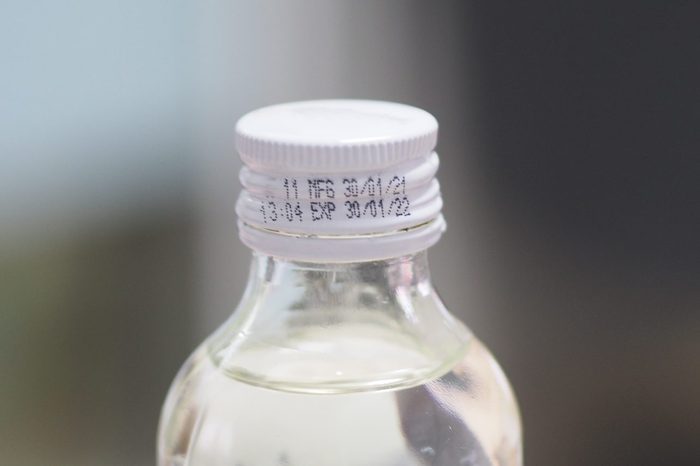
Using it past expiration
As soon as you open a vitamin C product, make sure you use it, Rowland-Warmann says. Vitamin C is an “unstable” compound, which means that it breaks down over time. Exposure to air, heat, and light just speeds up this process.
So, while product shelf lives vary based on product formulations and ingredients, Rowland-Warmann says the average lifespan is about three months once it’s been opened. “You need to change out your product before the color goes amber or yellow,” she explains. This is the tell-tale sign that the vitamin has oxidized and won’t be very effective. (Good to know!)
The Best Anti-Aging Secrets Dermatologists Won’t Tell You for Free
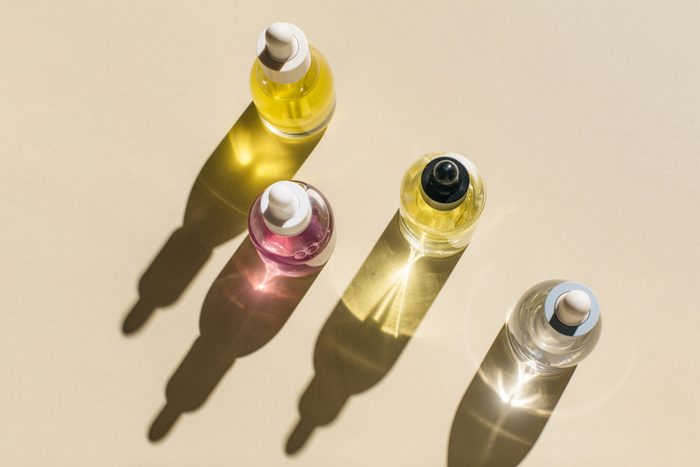
Applying it out of order
The golden rule of skincare application is to start with the lightest products first, then add on those with a heavier, thicker consistency. This means you should cleanse, apply toner (if that’s a part of your routine), and then layer on your vitamin C serum, Dr. Jaliman says.
And don’t forget the sunscreen in the morning—just make sure it’s the last product you use before applying makeup. This is because it creates a barrier, which is crucial for blocking out the sun’s rays, but also prevents serums like vitamin C from absorbing into your skin.
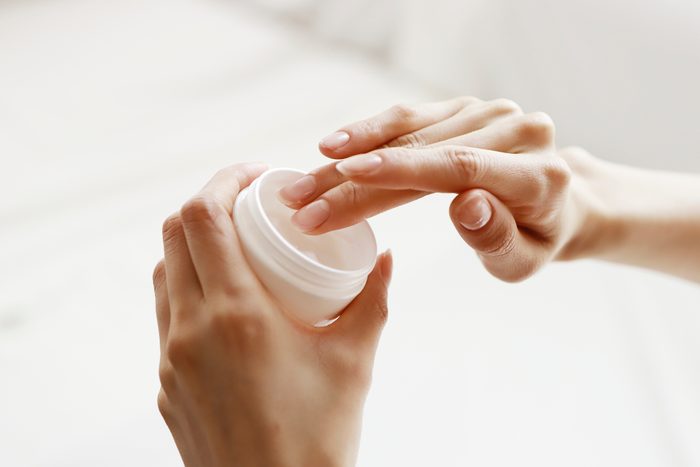
Skipping moisturizer
Using a hydrating moisturizer will help to keep any potential irritation at bay when using vitamin C. But it can also stop your serum from changing color on your skin.
Because vitamin C oxidizes when it encounters heat, sun, and air—a common problem people face is having it turn orange on their face during the day, says Anna Chacon, MD, a board-certified dermatologist in Miami. Applying moisturizer (followed by sunscreen) on top of your vitamin C layer will protect it from the elements, avoiding this darkening effect.

Quitting too soon
Dr. Loucas explains: “People often stop topical vitamin C serum prematurely. It can take up to 12 weeks to see improvement”—adding that you shouldn’t stray from your routine if you aren’t yet seeing results.
Dr. Loucas adds that overuse is a common issue—and the ingredient is most effective in small amounts. If you’re using large amounts or applying more frequently than once or twice a day, skin purging can occur, which can cause pimples, blackheads, peeling, and irritation. “More is not always better!”
Follow The Healthy on Twitter, and keep reading:
- Tiffani Thiessen Reflects on Her Grief After Losing 3 Iconic Co-Stars: “Life Is Extremely Precious”
- Here’s How Long the Best Nap Lasts, a Neuroscientist Says
- Rob Lowe Gets Candid about Fatherhood, Fitness, and the Diet That’s Been a ‘Very Good Fit’
- Does Dry Needling Work? 2 Doctors Share This Treatment’s Potential to Heal and Reduce Pain
